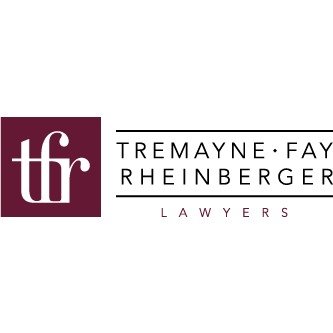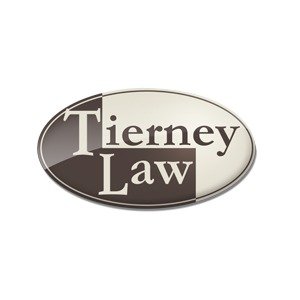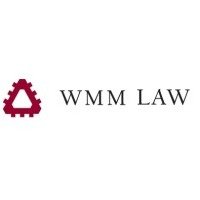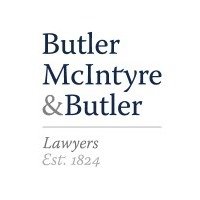Best Estate Planning Lawyers in Hobart
Share your needs with us, get contacted by law firms.
Free. Takes 2 min.
List of the best lawyers in Hobart, Australia
About Estate Planning Law in Hobart, Australia
Estate planning in Hobart, Australia, involves the legal processes of preparing for the management and disposal of a person's estate during their life and after death. This includes the drafting of wills, setting up trusts, and determining the distribution of assets to beneficiaries. The goal is to ensure the individual's wishes are fulfilled, taxes are minimized, and the financial well-being of beneficiaries is secured. Estate planning laws in Hobart are governed by both state laws specific to Tasmania and federal laws, making it essential for individuals to understand the local legal requirements.
Why You May Need a Lawyer
There are several situations when seeking a lawyer for estate planning in Hobart could be beneficial:
- You own a significant amount of assets, including property, businesses, or investments.
- You wish to set up a trust to provide for minor children or vulnerable adults.
- You have a complex family structure, such as blended families or estranged relatives.
- You aim to minimize estate taxes and reduce potential legal challenges after your death.
- You need guidance on Australian and Tasmanian estate laws and how they apply to your circumstances.
Local Laws Overview
Estate planning in Hobart, like the rest of Tasmania, is primarily governed by the Wills Act 2008 and the Administration and Probate Act 1935. These laws set out the requirements for creating a valid will, appointing executors, probate laws, and managing intestacy (dying without a will). Estates of deceased persons in Tasmania are administered under the jurisdiction of the Probate Division of the Supreme Court. Also, the Inheritance (Family Provision) Act 1970 allows eligible individuals to contest a will if they believe they were not adequately provided for.
Frequently Asked Questions
What is the difference between a will and a trust?
A will is a legal document that outlines how your assets are distributed after death, while a trust can manage your assets during your lifetime and afterward. Trusts can offer privacy and potentially avoid probate.
Can I write my own will?
While it is legal to write your own will, it is advisable to consult a lawyer to ensure it meets all legal requirements and accurately reflects your wishes, thereby preventing possible disputes.
What happens if I die without a will in Hobart?
If you die intestate (without a will), your estate will be distributed according to the intestacy provisions of the Administration and Probate Act 1935, which might not align with your personal wishes.
How can I ensure my children are cared for in my estate plan?
You can appoint a guardian for your minor children in your will and set up trusts to manage any assets left to them until they reach adulthood.
What is probate, and do I need it?
Probate is the legal process of verifying a will with the court, required when a deceased person owned assets solely in their name. It can be essential for asset distribution.
How are taxes handled in estate planning?
Australia does not have an inheritance tax, but certain superannuation benefits or capital gains may be taxed. Proper planning can help minimize potential taxes.
Can I change my will after creating it?
Yes, you can revise your will as needed. This should be done formally through a document known as a codicil or by creating an entirely new will.
What should I consider when choosing an executor?
Select someone trustworthy, organized, and capable of handling financial responsibilities. It can be a family member, friend, or a professional like a lawyer.
How do I contest a will?
If you believe you were unfairly excluded or provisions are inadequate, you can contest the will under the Inheritance (Family Provision) Act 1970 within a specific period after probate is granted.
What documents are essential for estate planning?
Key documents include a will, power of attorney, and advance health directive, which collectively ensure your wishes are carried out regarding asset distribution, financial decisions, and healthcare preferences.
Additional Resources
Several resources can assist in estate planning in Hobart, including:
- Tasmania Legal Aid
- Law Society of Tasmania
- The Supreme Court of Tasmania - Probate Division
- Australian Securities and Investments Commission (ASIC) for superannuation advice
Next Steps
If you find yourself needing legal assistance in estate planning, consider the following steps:
- Identify your estate planning goals and gather information on your assets.
- Research and choose a qualified estate planning lawyer in Hobart who can guide you through the process.
- Schedule a consultation to discuss your needs and begin drafting the necessary legal documents.
- Regularly review and update your estate plan as your circumstances or local laws change.
Lawzana helps you find the best lawyers and law firms in Hobart through a curated and pre-screened list of qualified legal professionals. Our platform offers rankings and detailed profiles of attorneys and law firms, allowing you to compare based on practice areas, including Estate Planning, experience, and client feedback.
Each profile includes a description of the firm's areas of practice, client reviews, team members and partners, year of establishment, spoken languages, office locations, contact information, social media presence, and any published articles or resources. Most firms on our platform speak English and are experienced in both local and international legal matters.
Get a quote from top-rated law firms in Hobart, Australia — quickly, securely, and without unnecessary hassle.
Disclaimer:
The information provided on this page is for general informational purposes only and does not constitute legal advice. While we strive to ensure the accuracy and relevance of the content, legal information may change over time, and interpretations of the law can vary. You should always consult with a qualified legal professional for advice specific to your situation.
We disclaim all liability for actions taken or not taken based on the content of this page. If you believe any information is incorrect or outdated, please contact us, and we will review and update it where appropriate.

















